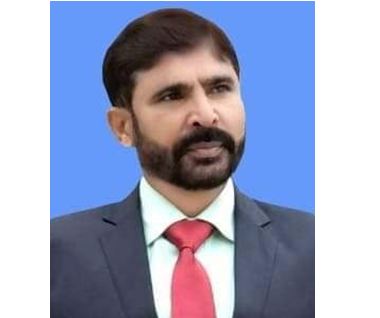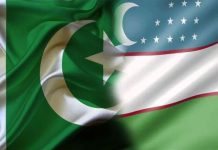Dr. Muhammad Akram Zaheer
Pakistan is facing many problems of rising inflation, food shortages, the threat of sovereign debt, and escalating violence, its political system entered 2023 with high stakes among the political elite, causing government paralysis and confidence. The democratic institutions are drastically going to be declined. Harsh politics are not new in a polarized Pakistan, but their combination with economic, humanitarian and security crises have made the country’s current problems all the more pressing. The challenges facing this populous, strategically located and nuclear-armed Islamic nation are also spilling over into Pakistan’s relations with countries and neighbors in the region.
On 25 July 2018, parliamentary elections took place, which were won by Imran Khan and his Pakistan Tehreek-e-Insaf Party (PTI, Pakistan Movement for Justice). Even though significant restrictions were imposed during the election campaigning, the elections can be described as democratic, leading to the second peaceful change of government in succession. The new government had promised a number of socio-economic reforms and efforts against corruption. Therefore its record has been mixed, and its fiscal space is limited. The socio-economic situation remained difficult.
The latest round of political turmoil began in April 2022 with the overthrow of Imran Khan’s government in a parliamentary vote of no confidence that exposed the collapse of the ruling military-civilian condominium and the clever dealings of the various 12 political parties. But rather than leave Khan alone, he has joined a spirited populist campaign that now looks likely to see him returned to office in the next national election. The current political deadlock is particularly over setting the date for those elections, constitutionally mandated for October 12, 2023.
Building on the momentum of his move, Imram Khan and his Tehreek-e-Insaf (PTI) supporters are trying to hold early elections, while a coalition led by the Pakistan Muslim League (Nawaz) party arrives as late as possible. To stay in power, the government relied on its patronage networks and resorted to politicizing key state institutions such as the judiciary, the accountability office, and the country’s electoral commission. In mobilizing his supporters, Khan used inflammatory rhetoric and maneuvered politically in ways that many believe exceeded the limits of democratic competition. Pakistan’s powerful military, temporarily on the sidelines but mindful of its institutional interests, arbitrates the bitter rivalry.
Pakistan’s internal security is threatened by terrorism, extremism and separatist movements. The security situation in the Province of Khyber Pakhtunkhwa, in the former tribal areas and in the Province of Balochistan is constantly tense. Even though the security situation in significant parts of the country has improved, the government has so far not been able to enforce its monopoly on force throughout the country. Since the Taliban took power in Afghanistan, terrorism has begun to increase again, especially in Balochistan and Khyber Pakhtunkhwa
Many international actors are also closely following the political developments in Pakistan. Many countries are concerned about the ability of a troubled and politically paralyzed Pakistan to deal with the growing challenge of militant extremism. Although Khan has toned down some of his anti-American rhetoric, he continues to refer to the current government as “imported” and his often sympathetic views of the Pakistani and Afghan Taliban have worried American and European powers. Many Gulf States, which for years have relied on Pakistan’s military to provide security for the government and value Islamabad’s regional diplomatic role, need the security of a politically predictable and stable Pakistan. The same is true of the international financial community which, along with the Saudis, Chinese and others, has invested heavily in Pakistan.
The year 2023 probably has many open questions. Among them, can Pakistan’s warm political system succeed in curbing election violence? Will the army keep its promise not to interfere in the electoral process? Could the resounding triumph of Khan’s conspiratorial populism reshape politics in a way that sets Pakistan on a more authoritarian path? How could a collapsing economy affect the political process, possibly postponing elections? The minor question is that Pakistan has a long way to go to establish a stable and functional political system, let alone build a democratic political culture.
Now all eyes are on how military-civilian relations that arebeing shape up under AsimMunir. Under Bajwa, the military consolidated its control over all sorts of behind-the-scenes politics. Bajwa presided over a close “same page” relationship with Khan. When this conflict occurred, the Muslim League (N) was eager to replace Khan as an ally of the military and head of the civilian government. Bajwa resigned saying that the army would no longer be involved in political affairs. Very few people in Pakistan believe him. With politics dominating the agenda this year and elections approaching, army chief AsimMunir has a chance to show the country whether he will follow in his predecessor’s footsteps or chart a new course for Pakistan’s civil-military relations. The political parties must also agree that in future the opposition parties will fulfill their duties but will not attempt to overthrow any existing government before the end of their term. All political parties must also express their commitment to maintain continuity in the economic policies of each government.












